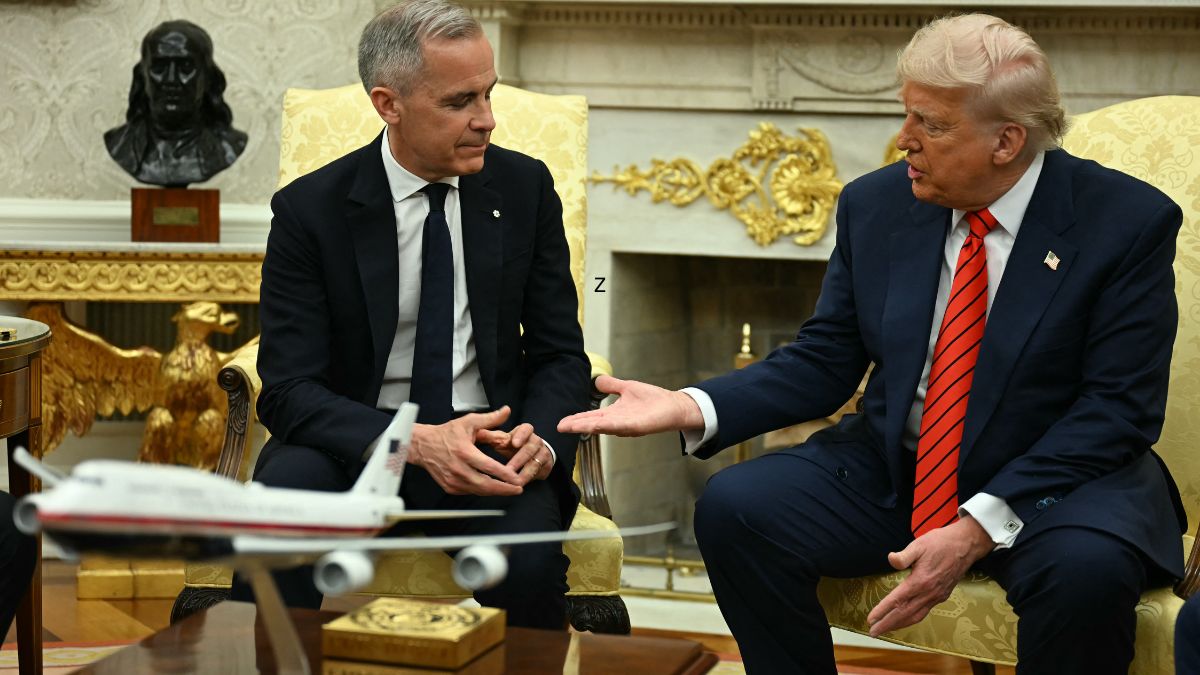PM Carney believes Trump is no longer interested in turning Canada into 51st state
)
Canada's Prime Minister Suggests Trump's Annexation Ambitions Are Over
Ottawa – Canadian Prime Minister Justin Trudeau, while not explicitly naming Donald Trump, suggested on Tuesday that any previous US interest in annexing Canada, potentially making it the 51st state, appears to have dissipated. The comments, made during an interview, hint at a shift in the dynamics between the two North American neighbors, particularly in the context of a potential return of Trump to the White House.
Trudeau's Remarks Signal Eased Tensions
The Prime Minister implied that a past desire for the US to "covet" Canada no longer seems to be a factor in the bilateral relationship. While avoiding direct mention of Trump, the context strongly suggests the remarks were directed at the former US President's past rhetoric and perceived ambitions. This comes at a time of heightened global uncertainty and increasing scrutiny of international alliances.
The comments follow years of fluctuating relations between Canada and the US, marked by trade disputes, differing approaches to international agreements, and sometimes strained personal interactions between leaders. Although Trudeau's statement was brief, it carries significant weight, particularly given the historical sensitivity surrounding US-Canada relations and past instances of American expansionist ambitions.
Historical Context: A Legacy of Unease
The idea of the US annexing Canada, while often dismissed as far-fetched, has a long and complex history. During the American Revolutionary War and the War of 1812, the US attempted to invade and annex parts of Canada. These attempts failed, but they left a legacy of unease and a sense of Canadian identity forged in opposition to American expansionism. The concept, while now largely relegated to historical discussions and satire, occasionally resurfaces in political discourse, particularly during periods of tension or disagreement between the two countries.
Expert Analysis: Shifting Geopolitical Landscape
Dr. Eleanor Sloan, a professor of International Relations at the University of Toronto, suggests that Trudeau's remarks reflect a broader understanding of the changing geopolitical landscape. "The world is becoming increasingly multipolar," she explains. "The US, while still a dominant force, is facing new challenges and constraints. Annexing a country like Canada, even if it were politically feasible, would likely create more problems than it solves for the US, both domestically and internationally. Trudeau's statement could be interpreted as a subtle acknowledgment of this reality."
Furthermore, Dr. Sloan points out that Canada's strong economy, robust social safety net, and distinct cultural identity make it an unlikely candidate for annexation. "Canada has its own established path and trajectory. While deeply intertwined with the US, it has no desire to become a mere extension of it."
Implications for Future Relations
The Prime Minister's comments come at a critical juncture, with the potential for significant shifts in the global political order. A possible return of Donald Trump to the White House introduces uncertainty into the equation. While Trudeau's statement implies a lessening of past annexation concerns, it remains to be seen how the relationship will evolve under different leadership.
The economic ties between Canada and the US are extensive, with billions of dollars in trade flowing across the border every day. Both countries are also key partners in international security alliances, including NATO. Maintaining a stable and productive relationship is therefore crucial for both nations.
Political Fallout: A Measured Response
While Trudeau's office has not released any further statements clarifying his remarks, political analysts suggest that the comments were likely intended to be a measured response to past anxieties, rather than a provocative statement. The Canadian government is likely seeking to maintain a delicate balance, reassuring Canadians while avoiding any actions that could unnecessarily inflame tensions with the US.
The future of US-Canada relations will depend on a variety of factors, including the outcome of upcoming elections, evolving global dynamics, and the ability of both countries to address shared challenges such as climate change, economic inequality, and international security threats. Trudeau's recent comments, while brief, offer a glimpse into the complex and ever-evolving relationship between these two North American neighbors.
Originally sourced from: Firstpost
